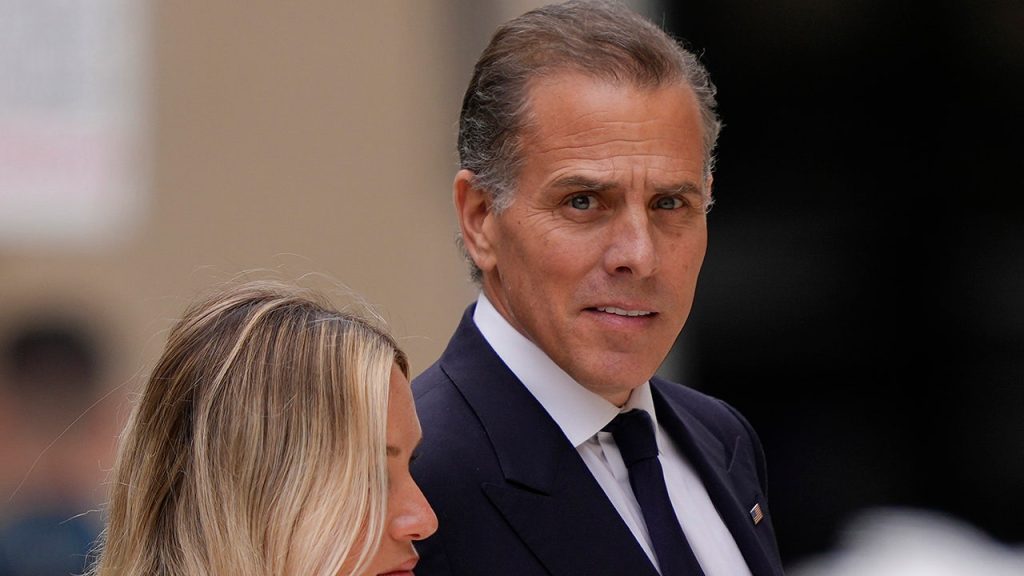President Biden announced that he has pardoned his son, Hunter Biden, for any offenses against the U.S. that occurred between Jan. 1, 2014, and Dec. 1, 2024. The White House made the announcement on Sunday night, with President Biden defending his decision by claiming that his son was treated unfairly by prosecutors. Hunter was convicted in two separate federal cases, including gun and tax offenses, earlier this year. President Biden stated that despite his oath not to interfere with the Justice Department’s decision-making, he felt compelled to intervene in his son’s case.
Hunter Biden, in a court document obtained by Fox News, acknowledged the presidential pardon he received. In a statement, Hunter expressed gratitude for the clemency and vowed to devote his life to helping others struggling with addiction. He also took responsibility for his mistakes during his addiction, acknowledging that they have been used against him and his family for political gain. Hunter’s past struggles with substance abuse, particularly detailed in his memoir “Beautiful Things,” were central to his defense during the trials earlier this year.
President Biden’s decision to pardon his son marked a shift from his previous statements over the summer when he declared he would not pardon Hunter. Despite Hunter’s guilty verdict in the gun case, President Biden had initially stated that he would abide by the jury’s decision and not intervene. The gun case centered around allegations that Hunter lied on a federal firearm form regarding drug addiction. Prosecutors argued that Hunter was addicted to crack cocaine at the time of the gun purchase, citing his texts referring to drug deals and drug use.
Hunter’s legal troubles extended to a second trial involving tax offenses, where he faced multiple felony and misdemeanor charges related to unpaid taxes. Hunter ultimately entered a guilty plea, citing a desire to spare his family from further pain and embarrassment. His sentencing for the tax offenses was scheduled for December, but President Biden’s pardon intervened before the court proceedings. The charges against Hunter carried a maximum sentence of 17 years, though federal guidelines suggested a shorter term. President Biden’s decision to pardon his son came amid speculation from then-President-elect Donald Trump about potentially pardoning Hunter if victorious in the election.
Throughout the legal proceedings and subsequent pardon, Hunter Biden’s battle with addiction and the political scrutiny faced by the Biden family were prominent themes. President Biden cited his son’s sobriety and recovery, emphasizing the need to put an end to what he termed as “selective prosecution.” The decision to intervene in Hunter’s cases reflected the complexity of the situation, balancing familial concerns with legal implications. Moving forward, Hunter intends to focus on helping others struggling with addiction, leveraging his own experiences to advocate for recovery and rehabilitation.

